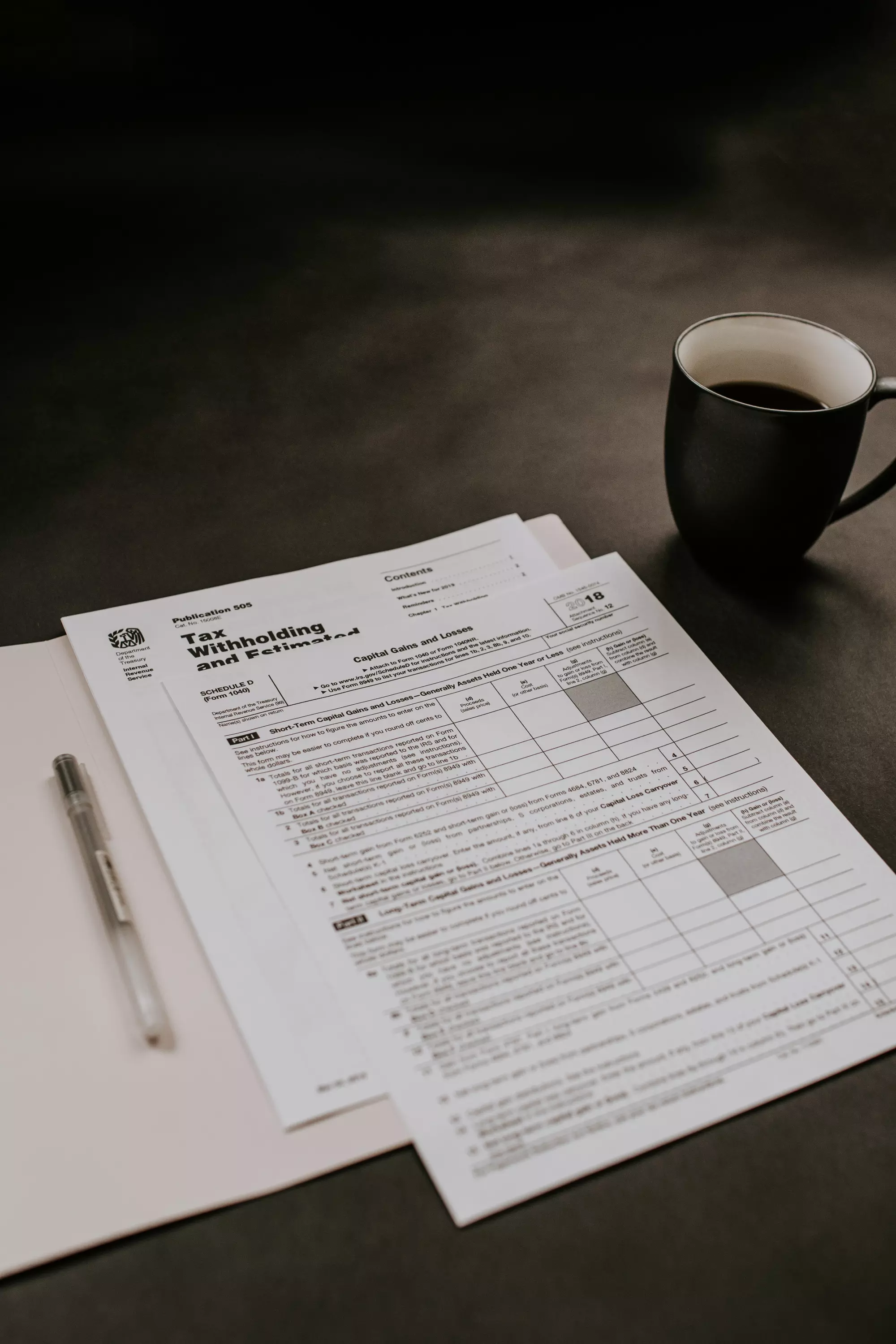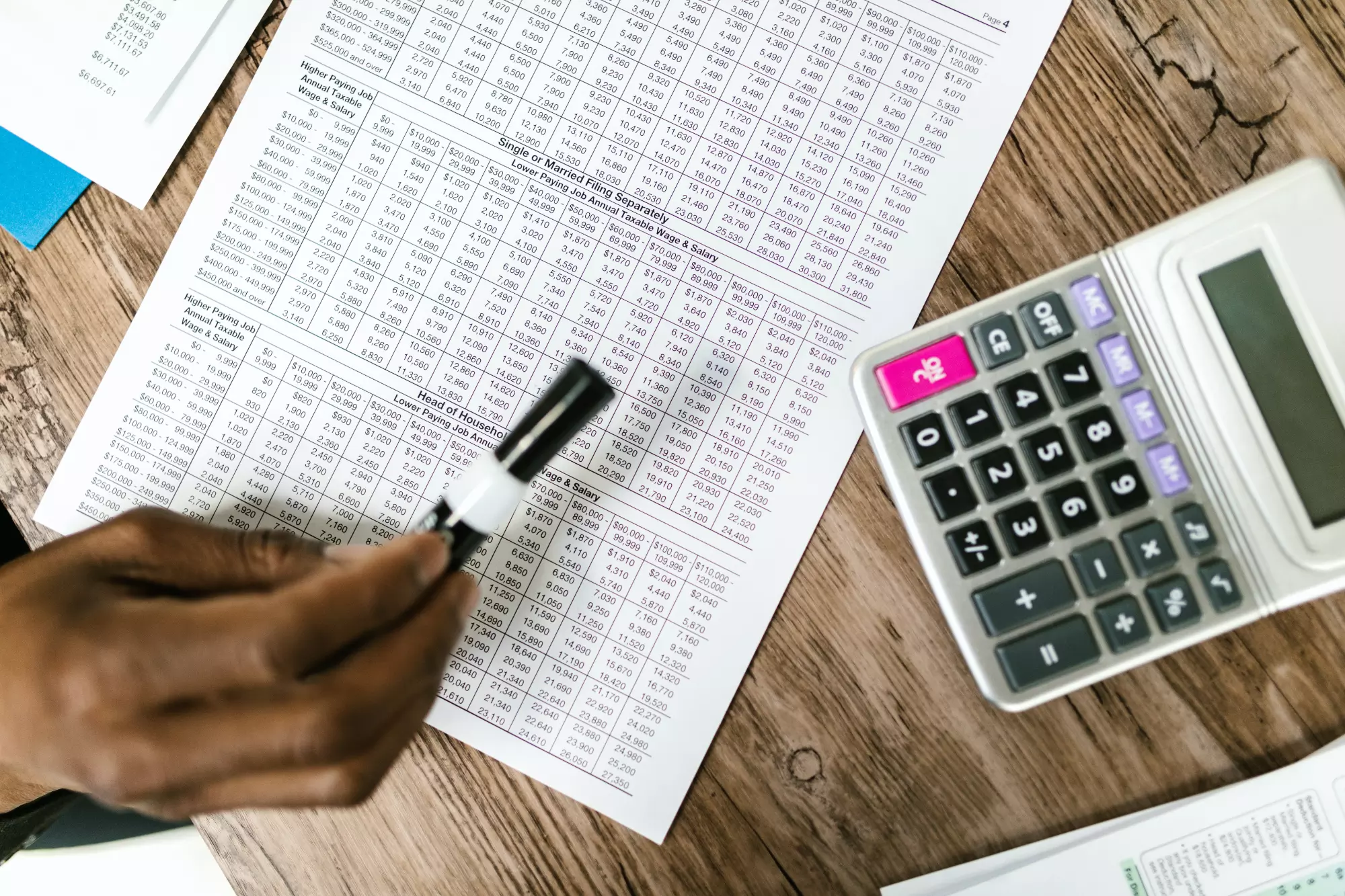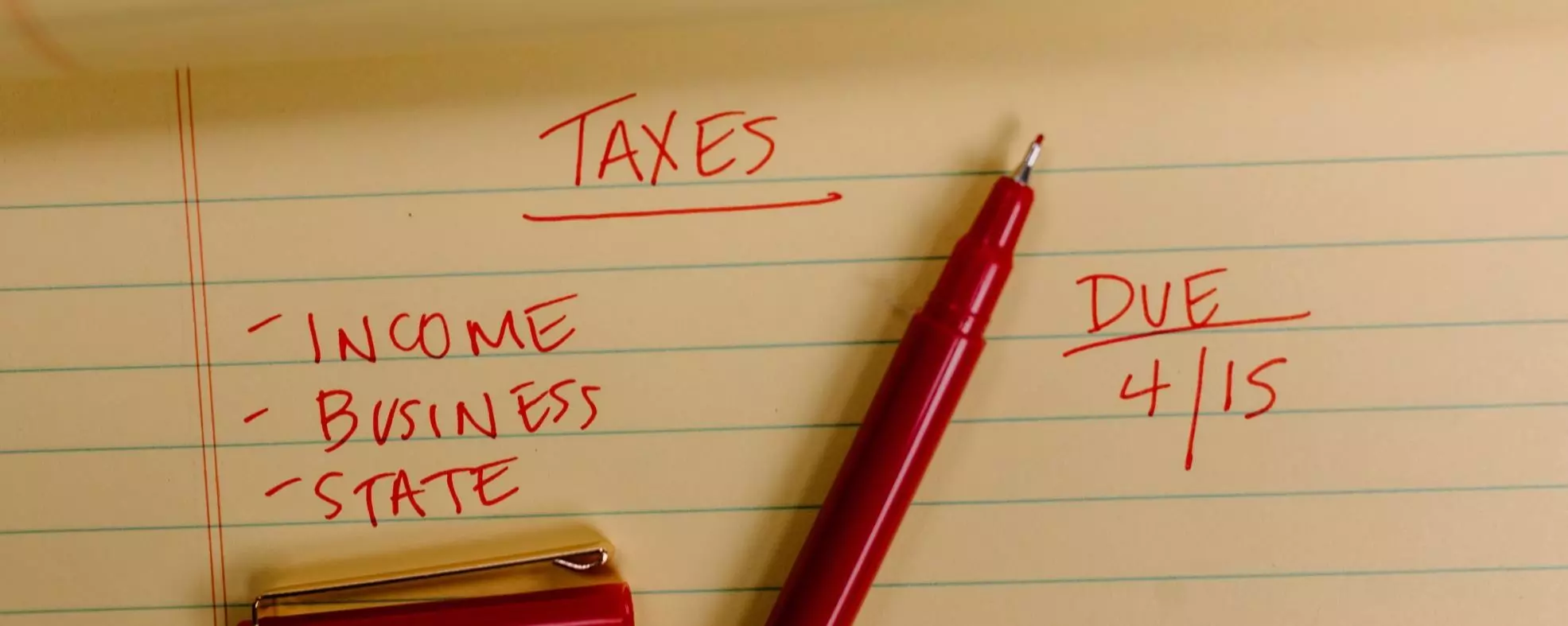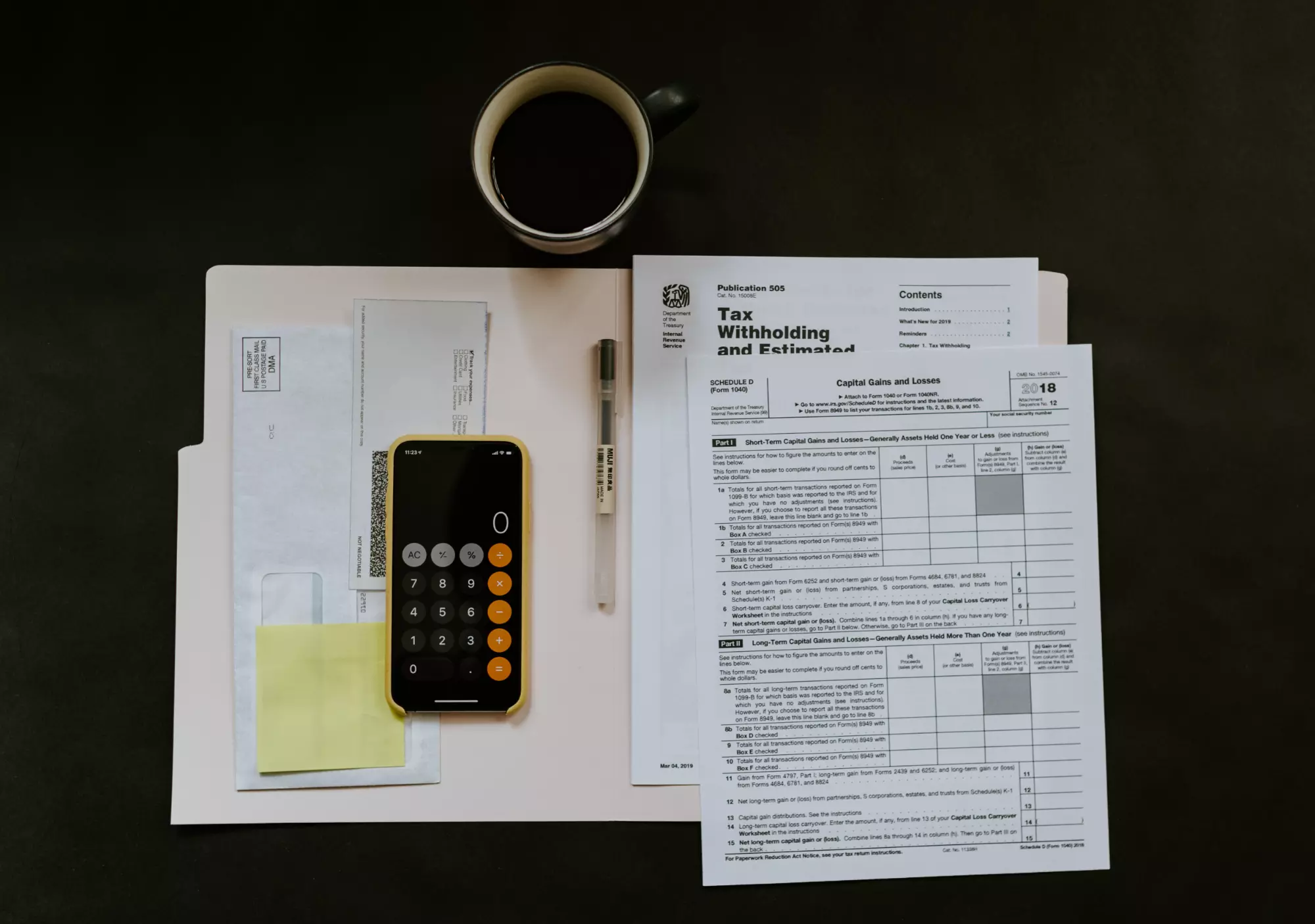What are the different types of taxes in the UK? This article looks at the British tax system and who has to pay tax in the UK. Read on to learn about capital gains tax, income tax and more.
The UK tax system
Her Majesty's Revenue and Customs (HMRC) is the organisation responsible for collecting UK taxes. There are several types of tax that they collect, including ones like Income Taxes, Value Added Tax (VAT), Property Taxes, Capital Gains Tax, Council Tax and Inheritance Tax.
Most of these are what is known as progressive taxes, meaning the higher your personal income, the higher the tax rate you will need to pay.
However, during the 2022/21 fiscal year, despite collecting over £580 billion in taxes, that was still a decrease of 7.7% from the previous year. HMRC and the British tax rates apply to most of the countries in the UK, including Wales, Northern Ireland and other islands around the mainland coast.

Notable exceptions include Scotland, which has its own tax policies, the Channel Islands and the Isle of Man. One peculiarity in British tax law is that HMRC treats spouses as two separate individuals and taxes them accordingly, with only small allowances regarding Income Tax. UK tax laws also apply to oil drilling platforms that operate in British territorial wasters.
To pay taxes here in the UK, you'll first need what is known as a National Insurance Number. If you weren't born in the UK, you'll also need to apply for a Skilled Worker Visa, formerly a Tier 2 Visa.
Since the UK withdrew from the European Union, these requirements are also necessary for citizens of European Economic Area (EEA) countries. The EU Settlement Scheme sought to help such people to arrange for themselves to remain in the UK after the withdrawal. The deadline of the 30th of June 2021 has passed, but there are exceptional circumstances where you can apply after it.
Types of Tax in the UK
There are many different types of tax in the UK, each of which must be paid to the tax authorities if you are liable for contributions. Most people are taxed through an automatic British fiscal system known as PAYE, where their employer deducts the relevant taxes from their wage before the employee is paid.
Alternatively, suppose you are self-employed or have a business incorporated as a traditional partnership. In that case, you may need to file self-assessment tax returns with HMRC to declare your profits and be taxed accordingly.
Here are some of the most common taxes people in the UK have to pay:
Capital Gains Tax
Capital Gains Tax is applicable when you have sold something that has increased in value since you first bought it. This usually applies to assets and investments, such as stocks and shares, but can also apply to things like pieces of art and other valuable assets.

Remember, it's the gain in value that you are taxed on rather than the price you receive for the asset. For example, if you bought a painting for £10,000 and sell it a few years later for £50,000, you will have gained £40,000 (£50,000 - £10,000 = £40,000), and it is this £40,000 that you will be taxed on.
Some assets, like gold coins, are tax-free assets, and if your gains during the relevant tax year are below your tax-free allowances, you won't have to pay Capital Gains Tax.
Income tax
Income Tax, as the name suggests, is charged on the total income you earn, usually on a monthly basis. Three main rates determine how much Income Tax you pay depending on how much you earn. These tax rates for the 2022/23 tax year are:
- Basic Rate Tax - set at 20%
- Higher Rate Tax - set at 40%
- Additional Rate Tax - set at 45%
For Income Tax purposes, before the basic rate, everyone in the UK has a tax-free Personal Allowance of £12,570, meaning you can earn up to this amount without paying Income Tax. The Basic Rate must be paid by those with income earned between £12,570 and the upper rate limit of £37,700. The Higher Rate applies to those earning between £37,700 and £150,000, while the additional rate applies to those earning above £150,000.
National insurance contributions
For the 2022/23 tax year, National Insurance Contributions (NICs) have been increased for both employers and employees by 1.25%. NICs go towards paying for essential services and contributes to your state pension. The two rates of NICs are as follows:
- Employees - National Insurance Contributions for those earning taxable income between the Primary Threshold (£242 per week, as of the 6th of July 2022) and the Upper Earnings Limit (£967 per week) are set at £13.25%. For those earning above the Upper Earnings Limit, there is an additional 3.25% NICs.
- Employers - National Insurance Contributions for employers are set at 15.05% if their taxable income exceeds the Secondary Threshold (£175 per week).
Consumption tax
Consumption taxes are a range of direct and indirect taxes that any consumer must pay. This includes things like VAT and Goods and Services Tax (VAT/GST), Excise Duty, Fuel Duty, Tariffs and some Property Taxes.

The most common consumable goods that these taxes apply to are things like tobacco, alcohol and cars. They are often used as an index to measure trends in consumer taxation and compared with other OECD countries.
For example, the UK has a VAT rate that is above average compared with other OECD countries.
Excise duties
Excise Duties aren't taxes on goods in the same way that VAT is, but they are paid on consumable goods, much like other customs duties.
Regardless of whether a good has been manufactured in the UK, arrived through the EU or imported from outside either the UK or EU, it must pay an Excise Duty.
While VAT or Sales Tax is proportional to the purchase price of the good being sold, Excise Duty is charged at a set rate per unit of the good.
Corporation tax
As of the 1st of April 2022, the Corporation Tax rate in the UK is set at 19%, with an increase from the central government looking unlikely for 2023. However, if some of your company profits come from using specific patents, a lower effective Corporation Tax rate of 10% applies.
Although, it's important to remember that a large portion of your trading profits can come from selling products, including patents, not just patent royalties.
Stamp duty
Stamp Duty Land Tax is the tax paid when you purchase a piece of land or residential property in England and Northern Ireland. Unless you are eligible for first-time buyer tax relief, any property worth over £125,000 will incur a Stamp Duty tax.

For first-time buyers, this limit extends to residential properties worth up to £300,000, with a further Stamp Duty discount on properties purchased for over £500,000. If you purchase a second home, you will have to pay an additional 3% in Stamp Duty for properties worth more than £40,000.
This is applicable for both freehold and leasehold properties, regardless of whether you are buying the property with a mortgage or outright.
Stamp Duty differs in the devolved governments of Scotland, where you have to pay a Land and Buildings Transaction Tax (LBTT), and Wales, where you must pay the Land Transaction Tax (LTT).
Inheritance Tax
Inheritance Tax charged when someone passes away affects the direct descendants named in their will receiving their estate, whether that means a sum of money, a property or their possessions. However, there are instances where Inheritance Tax doesn't need to be paid, including:
- The value of the entire inherited estate is below the £325,000 threshold.
- All property above the £325,000 threshold is left to the deceased's spouse, civil partner, or a charity or community organisation.
Even if your inheritance is below the minimum threshold, you still need to declare its value to HMRC. You can increase this threshold if you give your home to your children, including foster, adopted, stepchildren, and grandchildren.
In this case, your threshold will rise to £500,000. Additionally, if your own estate is worth less than the threshold amount, you can add your estate to your partners if you are married or in a civil partnership.
VAT
Value Added Tax (VAT) is the tax you pay when you purchase goods and services in the UK. Again, the UK has one of the highest VAT rates on the most common consumable goods and services that the average household uses at 20%.
Some goods are taxed at the lower rate of 5%, such as children's car seats and home energy. The UK used to charge VAT on sanitary products, known as the "Tampon Tax", but this was abolished in January 2021. VAT is automatically added to the prices of consumables on UK shelves.
Who has to pay tax in the UK?
Most of the taxes UK residents are eligible to pay are linked to your UK Income Tax. Essentially, once you have added all your taxable income and state benefits together and subtracted your standard UK Personal Allowance and any tax refunds, whatever remains of your income is taxed. Again, the Personal Allowance in the UK for the 2022/23 tax year is £12,570, with those earning less than this being tax-exempt.
If you earn above the Personal Allowance, your income falls into the trio of Income Tax bands, whether basic, higher or additional, as mentioned before. The tax band you fall into will also determine the rate of Capital Gains Tax you pay.

Within the UK population, around 32 million people are eligible to pay one form of tax or another. This does not take into account your residency states, whether non-domiciled residents or otherwise, as the tax rates apply to you whatever status you might have.
However, your residency status does determine which taxable income you must declare. For example, people who are UK residents for tax purposes are taxed on all their foreign income, with double taxation treaties in place to prevent you from being taxed in two counties.
Those who are non-UK residents or short-term business visitors only pay Income Tax on the money they earn here in the UK. You also cannot submit joint filings since the UK treats married or civil partnership couples as separate entities.
What happens if you don't file your taxes correctly?
If you have already paid tax on a certain amount of income, then HMRC doesn't need to know about it. However, if you have a separate tax liability besides the one you've already paid tax on, you need to declare this by filing a Self-Assessment Tax Return.
Whether you are renting a property or have a side-line selling things on the internet, any taxable profits from this must be declared if it exceeds your Personal Allowance. If you fail to file your taxes correctly, HMRC will issue an estimated tax bill, or "determination", which will most likely not accurately reflect your income or previous tax receipts.
This estimated bill will be in effect until you complete the appropriate Tax Return to rectify the issue. You can also be fined for filing your tax returns or paying tax late, even if you do not owe any tax. In extreme cases, the penalty you pay could be as high as the amount of tax you owe.
Get In Touch With our Tax Accountant Today
Are you looking for accounting and payroll in Cheadle Hulme and the surrounding areas of Manchester and Cheshire?
Follow the link below for professional accounting near you.

